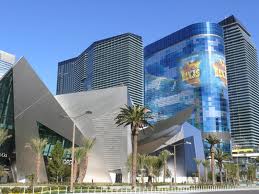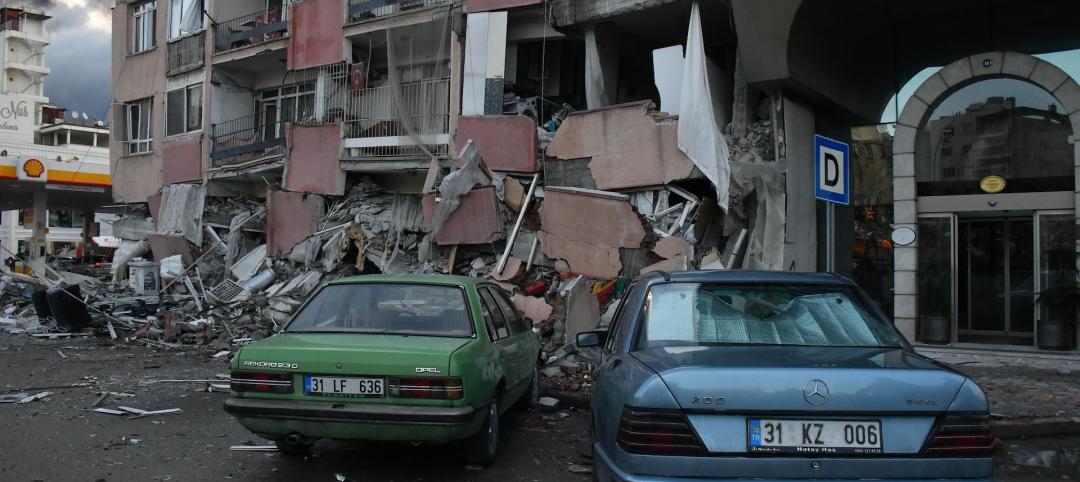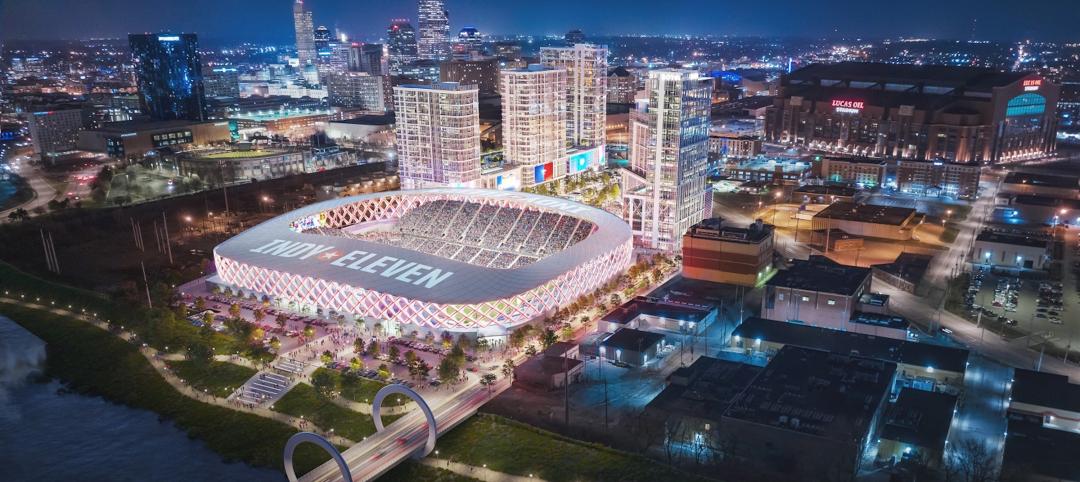MGM Resorts International shareholders and bondholders have filed an amended class-action lawsuit in hopes of recovering losses from the decline of the Las Vegas company’s stock and bond prices between 2007 and 2009.
Two and a half years ago, stockholders filed six lawsuits after the stock price fell from $99.75 on Oct. 9, 2007, to $1.89 on March 5, 2009. Bondholders sued over similar steep losses.
The securities holders complained the prices fell because of problems related to the global recession as well as undisclosed cost overruns, construction problems, and financial difficulties MGM Resorts faced with its half-owned $8.5 billion CityCenter casino resort complex on the Las Vegas Strip.
The lawsuits complained that MGM Resorts officials failed to promptly disclose many of these problems, causing the stock and bond prices to be inflated before they tumbled once the market realized how serious the issues were.
U.S. District Judge Gloria Navarro in Las Vegas on March 27 dismissed two of the suits, saying they weren’t specific enough.
The shareholders and bondholders responded Tuesday by filing an amended combined lawsuit with more specific allegations about what certain MGM Resorts officials told shareholders, bondholders and analysts in presentations and in earnings reports and conference calls in 2007, 2008, and 2009.
The amended suit says 10 confidential witnesses have provided detailed information to the shareholders’ attorneys about CityCenter construction and financing problems.
The suit says these witnesses are executives who served as a vice president of global sourcing for MGM Resorts, an MGM director of construction management and finance, an MGM design project manager, an MGM corporate finance officer, an MGM financial analyst, an MGM internal audit director, an MGM lead project manager, a cost engineer for general contractor Perini Building Co., a project control director for contractor Tishman Construction and an engineer on the podium portion of the Harmon Hotel, where construction remains halted because of construction defects.
Based on information from these witnesses, the shareholders allege that as early as August 2007 MGM Resorts officials falsely told shareholders that construction was “progressing nicely” on CityCenter and that it was “on budget.”
The shareholders allege these statements were false because much of CityCenter was being designed as it was being built, sometimes forcing contractors to remove components and then rebuild them according to updated designs.
“Constant design changes while construction was already in progress led to increasing construction costs,” the suit says, citing information from one of the confidential witnesses.
One witness “confirmed that MGM’s construction estimates were underestimated from the very beginning of the project because the design drawings were not completed and the exact quantity and grade of materials was not known to Perini when it made its initial bids (the bids on which MGM’s estimates were based),” the suit says. “After Perini submitted its bids, MGM changed the designs, increasing the quantity, grade and price of materials required, thereby increasing the construction costs.”
“The publicly announced construction costs for CityCenter were purposely underestimated. This was so because, while Perini provided accurate cost estimates to MGM, MGM and Tishman arbitrarily reduced those estimates by 20 percent when formulating CityCenter’s estimated construction costs to be reported to the public,” the suit charges.
The shareholders complained that CityCenter was “plagued by construction problems” including at the Harmon, where the suit says major issues were apparent as early as March 2008 but weren’t disclosed until January 2009.
The suit says that even when CityCenter was described as a $7.4 billion project in 2007, MGM Resorts was facing difficulties in finalizing $3 billion in financing for it.
That’s because just as the credit markets were tightening in response to the global recession, MGM Resorts was being squeezed by the declining value of CityCenter as well as a slowdown in visitation to Las Vegas that was reducing its revenue and cash flow.
“CityCenter would prove much more costly to MGM — and its shareholders — than ever disclosed by defendants. In fact, MGM’s crown jewel project would prove to be a virtual black hole, bringing the company to the brink of bankruptcy and causing its investors to suffer massive losses,” the suit complained.
The shareholders and bondholders in Tuesday’s amended complaint are pension funds, including the Arkansas Teacher Retirement System, the Philadelphia Board of Pensions and Retirement, the Luzerne County (Pa.) Retirement System and Netherlands-based pension fund manager PMT.
They claim to have lost about $6.7 million on their MGM Resorts investments and hope to recover their losses and the unspecified losses of others who bought MGM Resorts securities between Aug. 7, 2007, and March 5, 2009.
MGM Resorts – then called MGM Mirage – eventually finalized financing for CityCenter and beefed up its own balance sheet with a series of debt and equity issuances beginning in 2009.
The company has denied the shareholders’ allegations that it failed to disclose problems with the construction and financing of CityCenter; and it’s unknown when or how the shareholder lawsuits will be resolved. BD+C
Related Stories
Windows and Doors | Mar 5, 2023
2022 North American Fenestration Standard released
The 2022 edition of AAMA/WDMA/CSA 101/I.S.2/A440, “North American Fenestration Standard/Specification for windows, doors, and skylights” (NAFS) has been published. The updated 2022 standard replaces the 2017 edition, part of a continued evolution of the standard to improve harmonization across North America, according to a news release.
AEC Innovators | Mar 3, 2023
Meet BD+C's 2023 AEC Innovators
More than ever, AEC firms and their suppliers are wedding innovation with corporate responsibility. How they are addressing climate change usually gets the headlines. But as the following articles in our AEC Innovators package chronicle, companies are attempting to make an impact as well on the integrity of their supply chains, the reduction of construction waste, and answering calls for more affordable housing and homeless shelters. As often as not, these companies are partnering with municipalities and nonprofit interest groups to help guide their production.
Modular Building | Mar 3, 2023
Pallet Shelter is fighting homelessness, one person and modular pod at a time
Everett, Wash.-based Pallet Inc. helped the City of Burlington, Vt., turn a municipal parking lot into an emergency shelter community, complete with 30 modular “sleeping cabins” for the homeless.
Codes | Mar 2, 2023
Biden Administration’s proposed building materials rules increase domestic requirements
The Biden Administration’s proposal on building materials rules used on federal construction and federally funded state and local buildings would significantly boost the made-in-America mandate. In the past, products could qualify as domestically made if at least 55% of the value of their components were from the U.S.
Industry Research | Mar 2, 2023
Watch: Findings from Gensler's latest workplace survey of 2,000 office workers
Gensler's Janet Pogue McLaurin discusses the findings in the firm's 2022 Workplace Survey, based on responses from more than 2,000 workers in 10 industry sectors.
AEC Innovators | Mar 2, 2023
Turner Construction extends its ESG commitment to thwarting forced labor in its supply chain
Turner Construction joins a growing AEC industry movement, inspired by the Design for Freedom initiative, to eliminate forced labor and child labor from the production and distribution of building products.
Multifamily Housing | Mar 1, 2023
Multifamily construction startup Cassette takes a different approach to modular building
Prefabricated modular design and construction have made notable inroads into such sectors as industrial, residential, hospitality and, more recently, office and healthcare. But Dafna Kaplan thinks that what’s held back the modular building industry from even greater market penetration has been suppliers’ insistence that they do everything: design, manufacture, logistics, land prep, assembly, even onsite construction. Kaplan is CEO and Founder of Cassette, a Los Angeles-based modular building startup.
Airports | Feb 28, 2023
Data visualization: $1 billion earmarked for 2023 airport construction projects
Ninety-nine airports across 47 states and two territories are set to share nearly $1 billion in funding in 2023 from the Federal Aviation Administration. The funding is aimed at help airports of all sizes meet growing air travel demand, with upgrades like larger security checkpoints and more reliable and faster baggage systems.
Seismic Design | Feb 27, 2023
Turkey earthquakes provide lessons for California
Two recent deadly earthquakes in Turkey and Syria offer lessons regarding construction practices and codes for California. Lax building standards were blamed for much of the devastation, including well over 35,000 dead and countless building collapses.
Sports and Recreational Facilities | Feb 27, 2023
New 20,000-seat soccer stadium will anchor neighborhood development in Indianapolis
A new 20,000-seat soccer stadium for United Soccer League’s Indy Eleven will be the centerpiece of a major neighborhood development in Indianapolis. The development will transform the southwest quadrant of downtown Indianapolis by adding more than 600 apartments, 205,000 sf of office space, 197,000 sf for retail space and restaurants, parking garages, a hotel, and public plazas with green space.

















